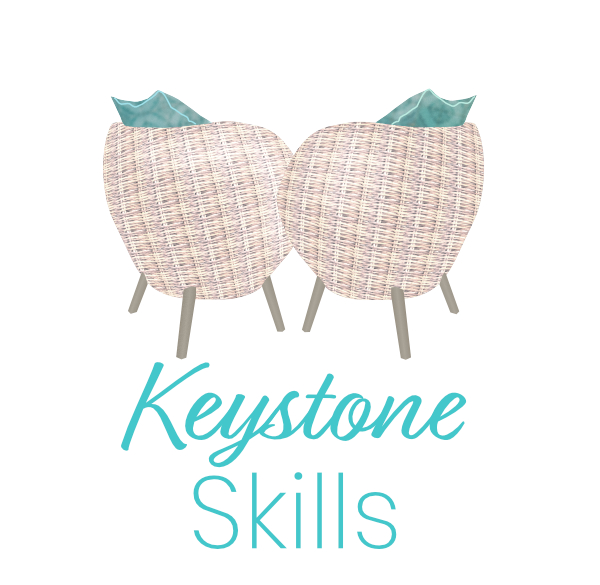 How to stop feeling bitter
How to stop feeling bitter
I met someone recently who, prior to my training in non-judgement, I might describe as a crabby old woman. She seemed bitter and complained about everything. Have you met one of these?
One lives in the apartment block next door to me.
I sometimes have trouble seeing her interest, care and passion because it’s hidden underneath the bitterness and complaining.
I never wanted to be a crabby old woman because they come across as “entitled”. This lady in the apartment block said something to a tradie who was accidentally parked in her spot. Many sentences drawn together with things like, I am not getting any younger and how unfair it was of for anyone to park there. It sounded like she wasn’t going to stop. The tradie and I made eye contact. I could tell we were bonding over the uncomfortableness.
After she had left, he remarked “Its’ always about them isn’t it!”.
And I was secretly hoping that someone will let me know if I start to become like that.
It’s not a female dominated character trait, we all remember Donald Trump. I have had a closer experience with a male partner a long time ago who was “entitled”. Which was just fine when he was on my side and doing things for the benefit of the partnership. It all came undone though when his fears raised exponentially as he was retrenched from a pretty high-flying position in a pretty high-flying industry. His boss was female and they had disagreements and as his fear of losing his position took hold, and so did his narcissism.
He became fearful generally and that was the beginning of our breakup. I don’t think I had seen these traits before, or if I had, they had been for our, or my, benefit. Maybe my selfishness prevented me from speaking up. Yet when entitlement is used for vengeance, it gets scary.
As my Mum ages, I also see this type of woman in aged care facilities. I imagine there are loads
of things that have happened in their lives that won’t be resolved or accepted. It seems there is a
community of older women and men all with battle scars, all living in the one environment,
arguing with each other and acting out of old hurts. I feel very sad when I imagine people being
unhappy and not understanding why.
It's nothing to do with happiness levels
An article in Psychology Today says that research on different age groups in the United Kingdom
showed that people over 60 were the happiest age group, with happiness starting to rise after age
50. A recent worldwide survey reported similar results, with people who were in good health in
their 70s being as happy and mentally healthy as 20-year-olds.
Despite how many pessimistic women or men you might meet….
You have options.
No matter how much you read about being a grumpy old woman or man, you don’t have to
become one.
Let’s view our different opinions instead of looking at it as an “either” “or” and presenting
problems as a choice between two opposites, when we present it as a problem to be solved, we
are more open to exploration.
Focussing on the underlying needs you have the whole problem not only the polarisation of two
perspectives.
Distinguish between preference and willingness
As one of my mentors Miki Kashtan says, most likely a solution that works for everyone is when
there is willingness. If I know that I matter then I’m willing to stretch to a wider range of options.
If we can let someone know they matter, that supports us, instead of digging our heals deep in our
preferences.
Do I matter
If I have a preference and I think I don’t matter, I will not be willing to stretch.
If I know what’s important to another person then I might be willing to stretch. Naming what is
important to me increases the likelihood someone else will shift.
At the intersection of all our willingness is the where we can meet everyone’s needs and
a solution can be found. This is different to compromise where no one is satisfied-
lose/lose.
Talking is important. And knowing how to talk to improve each other’s wellbeing is also
important. I can help with this, if you would like to find out more please click here.
I encourage you to take the first step which will yield more freedom and more collaboration
Take baby steps and you will see how much trust, goodwill and wisdom increase.
It’s a mindset shift from what do I believe is the best thing to what is most likely to work for
everyone.
From an NLP (neuro-linguistic programming) perspective most people will look above as they try
to see the shift from me to, we.
“There are three ways of dealing with difference: domination, compromise and integration. By
domination only one side gets what it wants, by compromise neither side gets what it wants, by
integration we find a way by which both sides may get what they want”. ~Mary Parker Follett
Learning dialogue skills
A solution that works for everyone can happen if we learn to dialogue where I speak my deepest
truth, when it's without my words being about the other person. If we can muster the courage to
say this is what is important and this is why it's important to me, and saying it with as much love
and care as possible, we have a chance to move towards that willingness.
Ending your dialogue with a question that’s designed to move us forward by checking out the
impact on the other person first rather than rushing to a solution can create connection and
willingness.
Click the pic above to listen to a Guy Sebastian song Battle Scars
love Glyn


Insightful article. It is making me feel how my insight dialogue can provide me with the tools to expand my comprehension of others needs and accept that the bitterness feeling is part of me, and I can work with it with compassion.
Thank you Jenny,
you got it! and remember you have needs too and can make requests of others. They may want to support you in meeting your needs…just a thought.